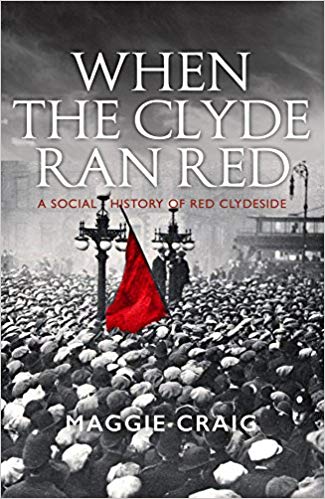
When the Clyde Ran Red paints a vivid picture of the heady days when revolution was in the air on Clydeside. Through the bitter strike at the huge Singer Sewing Machine plant in Clydebank in 1911, Bloody Friday in George Square in 1919, the General Strike of 1926 and on through the Spanish Civil War to the Clydebank Blitz, the men and women of Glasgow, Clydebank and beyond fought for the right to work, the dignity of labour and a fairer society for everyone.
Reviews of When the Clyde Ran Red
‘…readers will be swept along into this compelling narrative by Craig’s lively and buoyant style. As a record of social change, this book is invaluable. Hopefully a copy has found its way into the Scottish parliament where it should be compulsory reading.’ Roddy Phillips, Aberdeen Press and Journal
‘…a moving story told with enthusiasm and full of timely reminders about history and repetition. Her emphasis on the role of women in the Singer strike, the rent strike and the Suffrage movement is a powerful collective to the existing literature, much of which is men writing about other men.’ Sunday Herald
‘…essential reading … highly readable … not just history but also an inspiration for today.’ Morning Star
‘Maggie Craig has assembled a fascinating collection of historical events, from events as diverse as the strike at the Singer Sewing Machine Factory in 1911, Bloody Friday in Glasgow’s George in 1919, and the aftermath of the Clydebank Blitz in 1941.’ Scottish Field